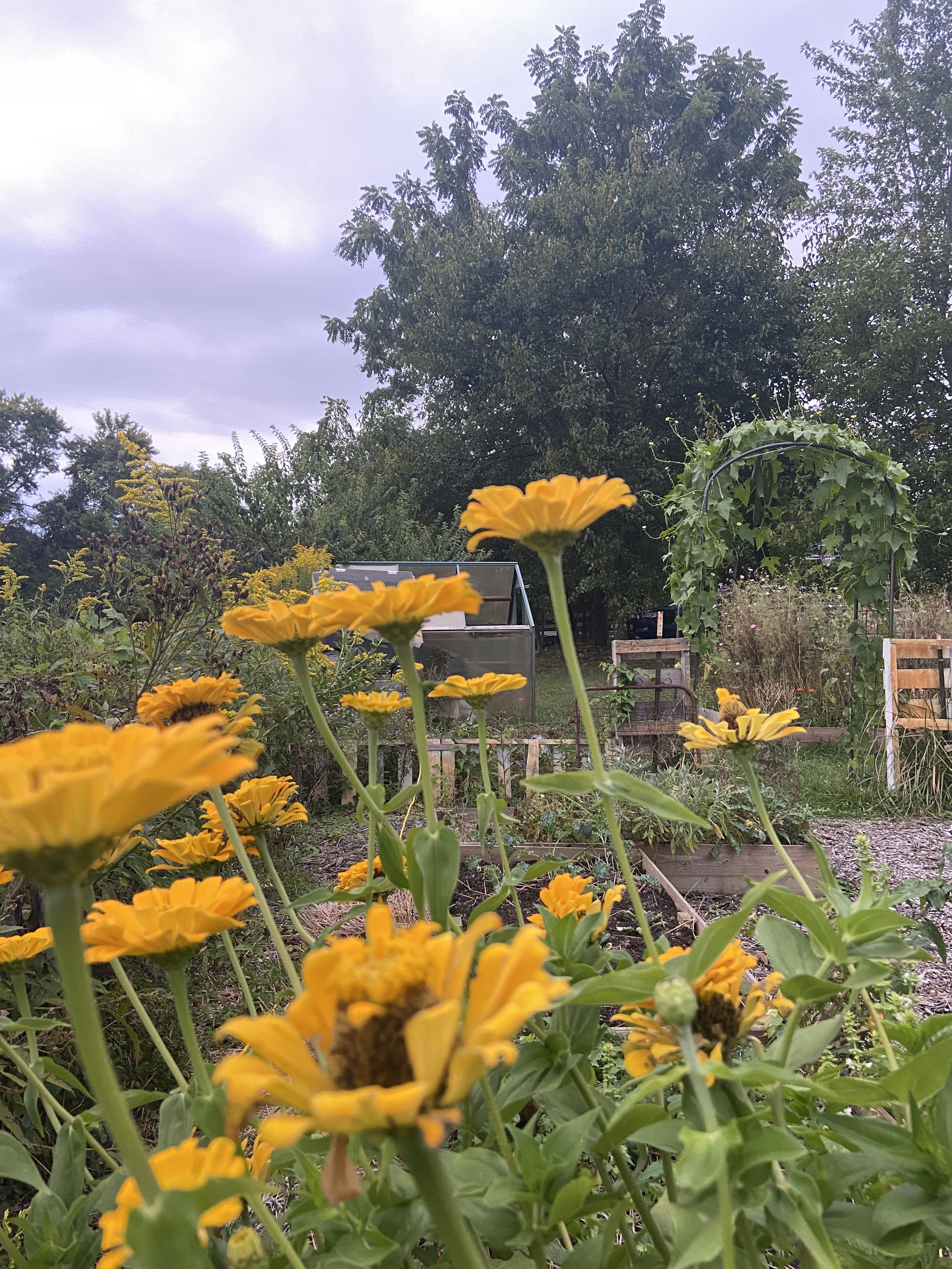our mission
growing a future where every home has a garden
what is cultivate curiosity?
Cultivate Curiosity is a collection of food education programs for children created by Laura Lemon, a mom with degrees in Nutrition Science and Public Health and a passion for food system education, gardening, and connecting others with nature.
Classes are designed around a play-based model so lessons are interactive, layered, and process-based.
why the garden?
The garden is our classroom. It’s a sanctuary that has a remarkable ability to stimulate our senses. With vibrant colors, sweet fragrances, and a symphony of natural sounds, the garden provides an ever-changing sensory experience for curious young minds. As children explore the garden, their fingers touch the soft petals of delicate flowers and the rough bark of sturdy trees. They are enveloped by the warm sunlight that filters through the tall plants, casting dancing shadows on the ground. The garden also presents a tantalizing array of scents, from the sweet aroma of blooming flowers to the earthy smell of freshly turned soil. The sounds of buzzing bees, chirping birds, and rustling leaves create a symphony of nature that captivates children's ears. In this sensory wonderland, children are not only encouraged to explore and play freely but also develop a deep appreciation for the natural world around them.
Our garden is not just a place for growing food, but also our children. One of the ways we cultivate childhood development is by honing problem-solving skills through exploration and experimentation. The garden presents questions at every turn, growing more challenging as our children age. What color is a ripe tomato? Is that bug a friend or foe? How many seeds did you plant? With every curious question, we embark on a journey of discovery. In this way, we cultivate not only delicious vegetables but also a mindset of resilience, adaptability, and creative problem-solving.
Benefits of Play-Based Learning in the Garden:
Scientific Exploration: Gardens serve as a living classroom. Whether it's observing the pollination process of flowers, identifying various insect species, or understanding the important role of bees in our ecosystem, there is always something scientific to discover. Through play, children can enjoy learning about the wonder of growth, the interconnectedness of nature, and the beauty of life's cycles.
Physical Activity: Spending time in the garden not only promotes physical activity but also contributes to a healthy lifestyle for children. Engaging in gardening activities allows children to enjoy the benefits of being outdoors, breathing in fresh air, and soaking up vitamin D from the sun. Gardening provides an opportunity for children to get moving, whether it's through digging, planting, or watering plants, which helps develop their motor skills (& a sense of responsibility) and increases their physical activity. By providing children with opportunities to play in the garden, we empower them to lead healthier lives of their own fruition.
Nutrition: Regularly exposing children to gardening can be a powerful tool in teaching them about nutrition and ultimately improving their diet. As they watch seeds sprout, plants grow, and vegetables flourish, children develop a deeper understanding of where their food comes from and the effort it takes to produce it. They become actively involved in the entire food production process, from planting to harvesting. This hands-on experience encourages them to try a variety of fruits and vegetables and appreciate the flavors of fresh, homegrown produce. My daughter is more likely to eat fresh, raw vegetables (sometimes directly off the plant) outside in the garden than she is to eat a bowl of frozen, mashed, or pureed food served at a dinner table. I believe it’s because of the autonomy of feeding herself and the fun and wonder of picking and trying new foods as she grazes the garden. By engaging children in gardening, we foster a lifelong relationship with healthy eating while instilling valuable skills that will positively impact their well-being for years to come.
Social & Emotional Development: Play-based learning in the garden is a wonderful way to cultivate responsibility, teamwork, communication skills, and resilience in children. By engaging in activities such as planting seeds, tending to plants, and harvesting fruits and vegetables, kids learn the importance of taking care of something beyond themselves. They develop a sense of responsibility as they understand the need to water, weed, and protect their garden. The garden teaches teamwork, where children learn to share tools, collaborate on tasks, and appreciate each other's contributions. We also teach about working together with nature. Communication skills blossom as they discuss gardening strategies, explore ideas, expand their vocabularies, and problem-solve. Additionally, the unpredictability of nature boosts resilience in children, as they learn to adapt to changing weather conditions and understand that setbacks and challenges can be overcome through perseverance. Through play-based learning in the garden, children acquire valuable life skills that will support their growth and development in various aspects of their lives.

